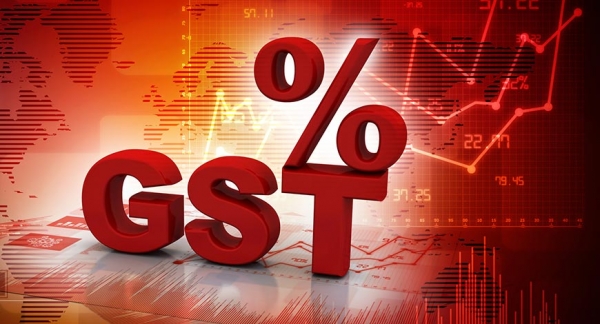Panel recommends structural changes to boost GST revenues
Due to the pandemic, several states have reported lost revenue, affecting the collection of taxes on goods and services, a development that requires measures to
- by Gaurav Grover 2021-03-19 06:48:48
The government should make structural changes to the goods and services tax (GST) system and increase compliance with increased revenues, given the need to compensate for the gap in state GST revenues, a parliamentary panel has advised the finance ministry.
Due to the pandemic, several states have reported lost revenue, affecting the collection of taxes on goods and services, a development that requires measures to improve compliance, said the Standing Parliamentary Committee on Financial Affairs chaired by Jayant Sinha, a former minister of State for Finance in a report released Tuesday.

"Given the prevailing economic scenario, the committee will urge the government to initiate all possible measures, both structural and implementation, to increase the collection of the GST, which has shown an upward trend in recent months," the panel said in its report.
The panel's reference to structural changes to the GST comes on the heels of central government plans to merge the 12% and 18% GST slabs, an idea that has found support among some states. The idea is to address the erosion of the incidence of indirect taxes on transactions after GST rollouts. The Fifteenth Finance Committee (FFC) also urged the government to restore "GST rate neutrality", which has been compromised by multiple interest rate cuts.
Although some transformative changes were introduced to step-up tax revenues, India's tax buoyancy has not been in line with income and wealth growth, according to the report. In developed countries, the ratio of taxes to GDP is around 25-26%. The commission said that most of India's national income comes from those unable to pay taxes, which explains why India's tax-to-GDP ratio is around 10%. "Given the restrictions on increasing tax rates, including their adverse economic impact, the committee expects to generate higher revenues through tighter enforcement and greater compliance," the report read.
Since July 2017, more than 17,000 entities have booked and more than Rs 2800 crore have been recovered from false invoice cases. The team recommended raising awareness of the GST structure and applying punitive measures against assessors for non-compliance on a larger scale.
Also Read: 10 Indian Food & Beverage Startups whose Popularity Grew in no time
POPULAR POSTS
Loan EMIs to Drop as RBI Slashes Repo Rate - Full MPC December 2025 Highlights
by Shan, 2025-12-05 11:49:44
Zoho Mail vs Gmail (2025): Which Email Platform Is Best for Businesses, Startups, and Students?
by Shan, 2025-10-09 12:17:26
PM Modi Launches GST Bachat Utsav: Lower Taxes, More Savings for Every Indian Household
by Shan, 2025-09-24 12:20:59
$100K H-1B Visa Fee Explained: Trump’s New Rule, Clarifications & Impact on Indian Tech Workers
by Shan, 2025-09-22 10:11:03
India-US Trade Deal Soon? Chief US Negotiator Arrives in Delhi as Talks Set to Begin Tomorrow
by Shan, 2025-09-15 11:54:28
Modi Meets Xi: Trump’s Tariffs, Strategic Autonomy, and the Future of Asia’s Power Balance
by Shan, 2025-09-03 06:40:06
Google Claims Gemini AI Uses Just ‘Five Drops of Water’ Per Prompt, Sparks Debate
by Shan, 2025-08-22 12:34:27
RECENTLY PUBLISHED

Pine Labs IPO 2025: Listing Date, Grey Market Premium, and Expert Outlook
- by Shan, 2025-11-05 09:57:07

The Agentic Revolution: Why Salesforce Is Betting Its Future on AI Agents
- by Shan, 2025-11-05 10:29:23

Top 10 Insurance Companies in India 2026: Life, Health, and General Insurance Leaders Explained
- by Shan, 2025-10-30 10:06:42

OpenAI Offers ChatGPT Go Free in India: What’s Behind This Big AI Giveaway?
- by Shan, 2025-10-28 12:19:11

Best Silver Investment Platforms for 2025: From CFDs to Digital Vaults Explained
- by Shan, 2025-10-23 12:22:46





 Subscribe now
Subscribe now 